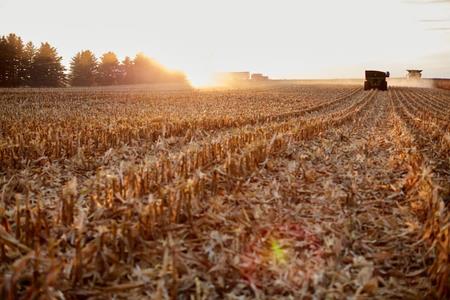Haryana Reports Three Cases Of Stubble Burning, Govt Takes Tough Measures
The Chief Secretary directed all departments to ensure 100 per cent compliance with the action plan and reiterated the government's zero-tolerance policy towards farm fires.
He underscored that protecting air quality is not only vital for Haryana but also for the health of the entire National Capital Region (NCR).
The Agriculture and Farmers' Welfare Department told that three cases of stubble burning have been reported this season from Fatehabad, Jind and Kurukshetra.
First information reports (FIRs) have been registered in all incidents, and red entries have been marked in the land records of the farmers concerned.
Additionally, environmental compensation charges have been imposed.
The department has cautioned that strict punitive measures will follow in the event of any future violations.
Rastogi reiterated the state government's commitment to strict enforcement to deter farm fires effectively.
State Agriculture and Farmers' Welfare Principal Secretary Pankaj Agarwal said that 5.65 lakh farmers have registered for crop residue management, covering a massive 39.33 lakh acres of paddy area.
The top five districts by registered acreage are Karnal (4.69 lakh acres), Kaithal (4.34 lakh acres), Sirsa (3.70 lakh acres), Fatehabad (3.61 lakh acres), and Jind (3.56 lakh acres).
Chief Secretary Rastogi directed officials to ensure the mapping of each farm in all villages so that specific modes of stubble management, whether crop diversification, in-situ incorporation, ex-situ use as fodder, or supply to industries, are properly assigned and implemented.
He said that Haryana is not only subsidising the purchase of CRM machines but also making them available through custom hiring centres (CHCs) for small and marginal farmers.
He stressed that district authorities must ensure optimal utilisation of machines, monitor availability at CHCs, and extend maximum support during peak harvesting periods.
This year alone, incentives of Rs 471.96 crore have been sanctioned, providing farmers with Rs 1,200 per acre to adopt sustainable residue management practices.
The meeting reviewed the functioning of the Agriculture Department portal and the Meri Fasal Mera Byora system, which are playing a key role in registration, booking of machines, disbursal of incentives, and real-time data reporting.
To ensure better outreach, nodal officers have been assigned groups of farmers, with each officer responsible for a maximum of 50 farmers in red and yellow zones and 100 farmers in green zone areas.
This structure allows for closer monitoring, timely advisories, and effective handholding.
A dedicated project monitoring unit has also been set up to track district-level progress and resolve farmer issues on priority.

Legal Disclaimer:
MENAFN provides the
information “as is” without warranty of any kind. We do not accept
any responsibility or liability for the accuracy, content, images,
videos, licenses, completeness, legality, or reliability of the information
contained in this article. If you have any complaints or copyright
issues related to this article, kindly contact the provider above.
Most popular stories
Market Research

- Seoul Exchange, One Of Only Two Licensed Platforms For Unlisted Securities, Will Exclusively Use Story To Settle Tokenized Rwas
- Phase 6 Reaches 50% Mark As Mutuum Finance (MUTM) Approaches Next Price Step
- 0G Labs Launches Aristotle Mainnet With Largest Day-One Ecosystem For Decentralized AI
- Solotto Launches As Solana's First-Ever Community-Powered On-Chain Lottery
- Kintsu Launches Shype On Hyperliquid
- Blockchainfx Raises $7.24M In Presale As First Multi-Asset Super App Connecting Crypto, Stocks, And Forex Goes Live In Beta





















Comments
No comment